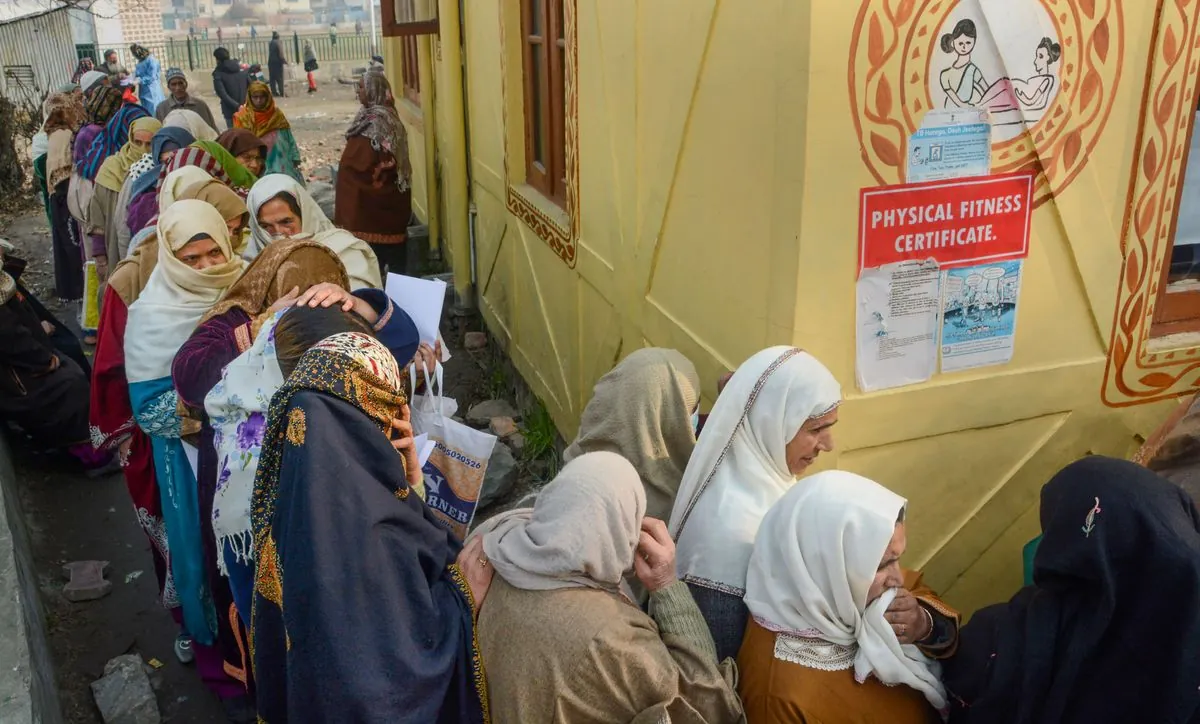In the bustling heart of south Mumbai, a small office has become a beacon of hope for many Muslims grappling with India's controversial Citizenship Amendment Act (CAA). Lawyer Nadeem Siddiqui has been working tirelessly to assist his community in navigating the complex world of document verification and correction.
The CAA, passed in 2019 and recently implemented, has sparked widespread concern among India's 200 million Muslim citizens. This legislation provides a pathway to citizenship for six religious minority communities from Afghanistan, Bangladesh, and Pakistan—notably excluding Muslims. Critics argue that when combined with the proposed National Register of Citizens (NRC), the CAA could potentially render many Muslims stateless.
Siddiqui reports a significant increase in clients seeking assistance, with daily visitors doubling to 135 in the months leading up to the CAA's implementation. Over the past two years, he has helped more than 40,000 Muslims correct their documents, often working pro bono.
The urgency stems from fears surrounding the NRC, a list intended to identify legitimate Indian citizens. Assam, the only state to have implemented the NRC, saw 1.9 million people excluded from its final list in 2019. This has raised alarms about the potential for similar outcomes nationwide.
"Bringing the CAA into force, in light of previous statements about weeding out so-called infiltrators, is likely to cause extreme unease among Indian Muslims."
The implementation of the CAA just weeks before India's general elections has been criticized as a political maneuver. Prime Minister Narendra Modi's Bharatiya Janata Party (BJP) has framed the law as "justice for persecuted Hindus," while avoiding discussion of its connection to the NRC.
Zakia Soman, founder of the Bharatiya Muslim Mahila Andolan, warns that while the repercussions may not be immediate, the CAA could become "one more tool in the hands of hatemongers." She cites recent incidents of violence and discrimination against Muslim communities as evidence of ongoing targeting.
The document correction process itself presents significant challenges. Discrepancies in spelling, missing papers, and the inability to file legal claims due to poverty and illiteracy have led to exclusions in Assam's NRC. Siddiqui himself discovered errors in his own documents, highlighting the complexity of the issue.
Socio-economic factors further complicate matters for many Muslims. As the poorest religious group in India with the lowest literacy rates, even small fees for document preparation can be burdensome. Irshad Khan, a 56-year-old security guard, exemplifies this struggle, unable to navigate the online passport application process due to lack of education.
Despite these efforts, uncertainty persists. Sayyed Alim, an 80-year-old Mumbai resident, expresses a sentiment shared by many: "If something goes wrong despite having documents, what can we do?"
As India's Muslim community continues to grapple with the implications of the CAA and potential NRC, the work of individuals like Siddiqui remains crucial. However, the broader issues of discrimination and targeting, as highlighted by reports from the U.S. State Department and international organizations, continue to cast a shadow over the future of India's largest religious minority.
